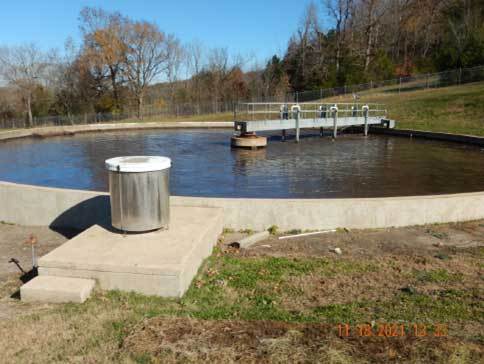Yellville/Flippin Sewer Violations Follow Up
February 25, 2022
Share This Page
Yellville and Flippin Violating Sewer Discharges
A Follow Up Report
This a follow up on the initial report that is found on website of Friends of the North Fork and White Rivers (friendsoftherivers.org).
The cities of Yellville and Flippin are under an October 2021 Consent Administrative Order (CAO) by the Arkansas Pollution Control and Ecology Commission for multiple violations over a two-year period involving discharge of untreated sewage from their collection systems. The CAO also cited violations of limits of treated discharge into Crooked Creek and Fallen Ash Creek. This article highlights the efforts of the city of Yellville to meet the requirements of the CAO.
In a recent phone interview with Shawn Lane, the mayor of Yellville, the mayor cited the importance of eliminating the collection system leaks and overflows. This is not just to fulfill the demands of the CAO, but to eliminate a public health threat, to assure economic growth, and to prevent deterioration of water quality in Crooked Creek. Mayor Lane has a personal investment in property along Crooked Creek and desires to protect those waters that are enjoyed by so many.
According to the mayor and a representative of Engineering Services, Inc. (ESI), the engineering firm contracted to survey the problem and to repair the system, steps have been taken with the hopes of meeting the deadline imposed by the CAO and avoiding penalty fines.
- The City of Yellville has obtained a grant of $227, 590 from the Arkansas Economic Development Commission for sewer collection system improvements. Design work and field surveys are underway. Construction with these funds will begin in 2022. This involves replacing some gravity sewer main lines and manholes.
- The City has applied through the Natural Resource Division (NRD) of the Arkansas Department of Agriculture for $4,000,000 in funds to improve the sewer collection system and the wastewater treatment facility. If funded, the project would replace over two miles of clay tile with PVC piping, replace over sixty (60) manholes, improve lift stations, and replace antiquated items at the 0.75 million gallons per day treatment facility with modern efficient facilities. This project, however, does not include a complete replacement of the sewer collection system or a complete replacement of the wastewater treatment facility. It does not increase the capacity of the treatment facility. It is estimated that development of plans, permitting, bidding, awarding and constructing may take two- and one-half years from the date of funding. Availability of funding through the ANRC grant is determined by federal funds allotted to the states for Infrastructure.
- Alternate plans, in the event of grant denial, would include a combination of long-term bonds, loans, and rate increase. Mayor Lane indicates that the city, in recent years, has restructured its debt in order to maximize borrowing power. A utility rate study is currently being conducted. A current tax rate restructure may be needed to pay for loan or bond debt.
- The city now employs one Level II Wastewater Operator, as required by the CAO. Two Level I Operators are currently in training.
While we at Friends of the North Fork and White Rivers point to the environmental concerns from such a problem, we also understand the impact that a fully functioning modern sewer system has on the economic development of the region. We think economic development and healthy waters can coexist. Other communities in the middle White River watershed, from Bull Shoals to Batesville, have tackled similar issues related to sewer and aging infrastructure. These efforts will be highlighted in another article.
Sam Cooke
